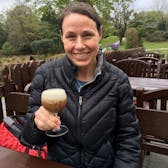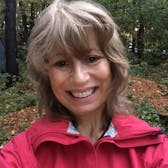George Sheehan's Running & Being: The Total Experience
By: Tim Smith
Shakespeare was wrong. To play or not to play: that is the real question. Anyone with a sense of humor can see that life is a joke, not a tragedy. It is also a riddle and, like all riddles, has an obvious answer: play, not suicide.
A few months ago I saw a posting from a fellow runner (I can't remember who) which showed a pile of books, including George Sheehan's "Running & Being". I remembered that I had a copy of that book, but hadn't read it in ages. So I searched my library and found it wedged between "Forest and Craig" and "How to build a Skin and Frame Kayak": there are organizational principles at work which defeat my reasoning. I've been slowly reading it since then.
For those of you who don't know about George Sheehan, he was a writer/runner from the 1970's and 80's was considered a bit of a guru. He was in fact an accomplished senior athlete (the first over 50 year old to break the five minute mile), and as a doctor he wrote about the physical side of running ("Dr. George Sheehan's Medical Advice for Runners" (1978), and more). But is was "Running & Being: The Total Experience", where he really left his mark: the book was #1 on the New York Times list.
A Philosopher-Runner? At one point he says that he could no more stop writing than stop running. But most of the time Sheehan would say he was first and foremost a Runner, who did a bit of philosophizing on the side. He was a runner before he was a doctor or husband or father; but perhaps not before he was a child. He tells us that he had lost his way after college, and forgot about his body and his running. But at some point in his late 40's he rediscovered his body, his running, and his passion. He was a born-again Runner.
Once Sheehan was asked by a reporter in Anchorage if running was a religion. Sheehan had hinted that it was religious-like. But after consideration he replied to the reporter, "Running is like Alaska. Running is not a religion, it is a place."
When I was in college Sheehan came to speak at my school and I found my ticket stuffed in my copy of Running & Being, so I can tell you the time, date and location with great precision. I remember someone asking him why his book relies upon so many quotes. To this he replied, "If somebody else has said it so well, who am I to try to re-state it?"
With that precedent, I'll quote heavily and without restraint.
Is running an art and the runner an artist? The best answer is that of Picasso. When asked , "What is art?" he replied, "What is not?"
So running is an art, along with everything else we do. When I run, I know this to be true. Running is an art and I am an artist, however ordinary my performance. Running for me is what the dance is for others. The oldest and highest of arts. My ancestors ran before they danced. And it is running, not dance, that gives me perfect conformity of form and matter.
Are these really the words of a 59 year old Brooklyn born, Irish cardiologist? Sometimes I sense a bit of the self-help mantra of the 1970's, but still . . .
When I set out to write this piece I consulted my former college teammates (we have an email list) to see if any of them remembered Sheehan's talk, it has been 40 years. I was surprised at the scraps of memories they sent me.
My old coach, Rich Ceronie, wrote that he fetched Sheehan from the airport, "I remember he spent a lot of time speaking in the car about how he didn't believe in showering as sweat didn't have any odor. And I remember I was sitting right next to him and thinking........I'm not quite sure that is accurate:) He was truly an interesting fellow."
I also remember Sheehan talking about how after a midday run he would just towel down and go back to work. Right now I'll just say he was a runner - and so perhaps a bit eccentric about a few things.
Joel added, "I was on that car ride with you, Coach! I soaked up his early books — back then distance running, outdoors, for fun, was considered a novelty, and people who liked to run were considered a bit "off." (A lot to be said for that point of view, maybe). Then Sheehan, Frank Shorter and Bill Rodgers changed all that."
To which Ceronie replied, "Haha, yes most folks thought we were all crazy doing that "distance" stuff."
Andy remembered that Sheehan often quoted the philosopher Jose Ortega y Gasset and that Rich Firth was confused because he only associated Ortega with tacos.
But Brenden (the same guy who raced me with the Remote Race in the summer) was delighted that running was "play", and that play is important.
I spent the next four decades with these feelings of being unworthy and incomplete and inferior. Combating my own nature. Trying to become someone I was not. Concealing the real me under layer after layer of coping and adjusting and compensating. All the while refusing to believe that the person I had initially rejected was the real me. All the while trying to pass as a normal member of a normal society.
Then I discovered running and the long road back. Running made me free. It rid me of concerns for the opinion of others. Dispensed me from rules and regulations imposed from outside. Running let me start from scratch.
It stripped off those layers of programmed activity and thinking. Developed new priorities about eating and sleeping and what to do with leisure time. Running changed my attitude about work and play. About whom I really liked and who really liked me. Running let me see my twenty-four-hour day in a new light and my lifestyle from a different point of view, from the inside instead of out.
Running was discovery, a return to the past, a proof that life did come full cycle and the child was the father of the man. Because the person I found, the self I discovered, was the person I was in my youth.
— Running & Being (page 27)
When I read his book now, on one hand it seems a little dated, the language is 1970's, part of the self help movement. But there is also some timeless commentary on this running life.
When I am ill I become skeptic. What has hitherto been certain becomes perhaps; what was perhaps becomes maybe; and what was maybe becomes probably not.
— Running & Being
Two of the themes he comes back too again and again are: You are what your body is and your body is who you are. And, play is more important than just about anything else in your life. How you play is how you are.
While composing this article I remembered that ages ago, it must have been 1983-4, because I was living in Eugene, Oregon, I kept a notebook where I copied out quotes from things I was reading. I found this notebook in a box that I should have tossed decades ago. So I'll close this article with some quotes which left an impression on me at that time.
For the runner, less is better. The life that is his work of art is understated. His needs are little, his wants few: one friend, few clothes, a meal now and then, some change in his pockets, and for his enjoyment his thoughts and the elements.
I see this simplicity as my perfection. In the eyes of the observer, however, it appears completely different. My success in removing myself from things and people, from ordinary ambition and desires, is seen as lack of caring, proof of un-involvement and failure to contribute.
So be it. A larger view of the world might include the possibility that such people are necessary. The runner who is burning with a tiny flame on some lonely road does somehow contribute. A world composed solely of runners might be unworkable, but a world without them would be unlivable.
— Dr. Sheehan On Running (page 42)
I have quoted that last line often and used it to justify a lot of my idiosyncrasies. Finally,
"We are happy", writes David Cole Gordon, "when however briefly we become one with ourselves, others and the world of nature." Sports certainly provides such moments. The fact that they mostly defy description may cause outsiders and observers to doubt their existence. But all athletes know the truth of "I play, therefore I am."
. . .
What happened to our play on our way to becoming adults? Downgraded by the intellectuals, dismissed by economists, put aside by the psychologists . . .
Play, of course, says otherwise. You may already have found that out. If you are doing something you would do for nothing, then you are on your way to salvation. And if while you are doing it you are transported into another existence, there is no need for you to worry about the future.
— Dr. Sheehan On Running (page 189-90)
I can understand being transported to that "Running Place."







